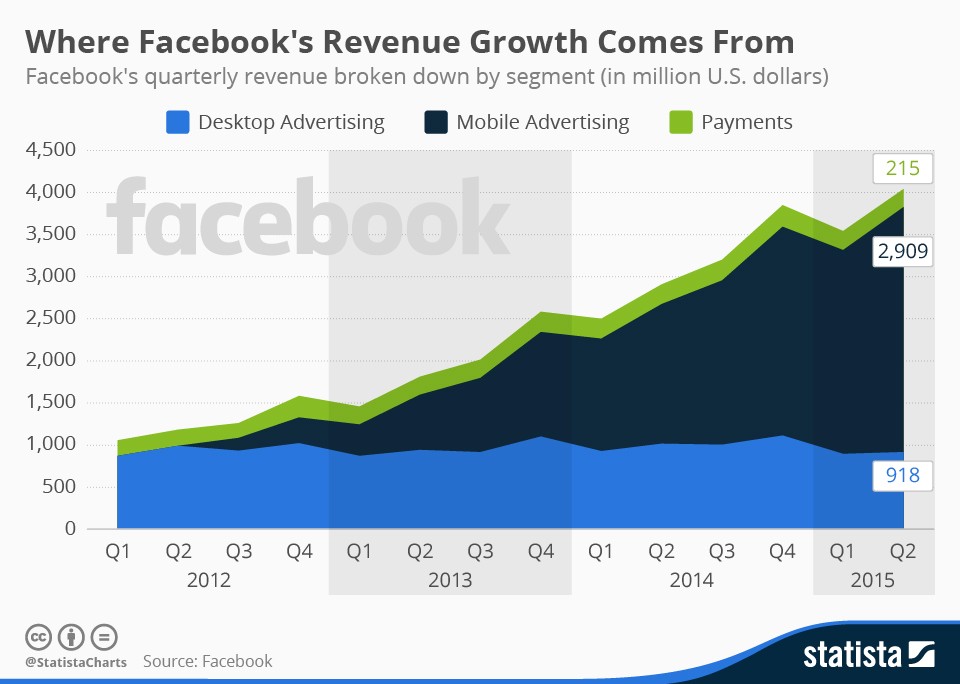Facebook Stock Forecast: Network Ad Blocking Is Not Going To Happen Soon
![]() The article was written by Motek Moyen Research Seeking Alpha’s #1 Writer on Long Ideas and #2 in Technology – Senior Analyst at I Know First.
The article was written by Motek Moyen Research Seeking Alpha’s #1 Writer on Long Ideas and #2 in Technology – Senior Analyst at I Know First.
Facebook Stock Forecast
- Mark Hibben discussed the alleged threat of network level ad blocking last October.
- Digicel, a telco operating in the Caribbean, was the first wireless operator to announce it will install Shine ad-blocking technology.
- Digicel wanted to automatically block ads on mobile apps, not just browser-based content.
- Telecom regulators ordered Digicel to stop its ad-blocking plans because it might violate its operating license.
There is little reason to worry about the alleged threat of the network level ad-blocking initiative previously discussed by Mark Hibben. The idea of carriers implementing network-level banning of mobile browser-based and in-app ads is not going to happen anytime soon. Consequently, I believe Facebook (FB) is likely to continue its momentum in mobile advertising.
Digicel (DCEL), a telco group with operations in the Caribbean islands, Central America and Asia Pacific countries just got a warning from the Eastern Caribbean Telecommunications Authority ((ECTEL)) not to proceed with its planned deployment of Shine ad-blocking software on its networks.
ECTEL’s warning should prevent Digicel from automatically blocking the ads being served by Facebook (FB), Google (GOOGL), and Yahoo (YHOO). Digicel only has 13.6 million mobile subscribers but this development is an important win for advertising-dependent firms like Facebook.
This issue is not limited to Digicel’s networks or Facebook’s own mobile apps. Facebook has a mega-lucrative business selling app-install ads to its clients. Like Hibben discussed in his October article, Digicel and other European telcos were already noisy about them possibly blocking in-app/browser based mobile ads of Google and Facebook earlier this year.
ECTEL’s ruling that wireless operators should not install network-level ad blocking software because it violates the principle of net neutrality could discourage Digicel and other wireless operators from using Shine software. ECTEL also made it clear that blocking any content, including ads, from reaching wireless subscribers without their explicit consent was a violation of the Telecommunications Act.
In short, installing Shine or any other network-level ad blocking software could constitute violation of the operator’s license.
Facebook Does Not Have To Share Ad Revenue With Telcos
There is nothing to fear in Hibben’s speculation over extortionate network level ad blocking. Going forward, I think Facebook will not have to share its revenue from its mobile advertising business with telcos like Digicel. It was obvious to me that the network-level ad-blocking idea first broached last May was a scheme to persuade Facebook and Google to share the advertising revenue with wireless operators.
Shine’s software allows wireless operators to track the monetization program of ad providers over their network infrastructure. It allows telecom operators to selectively block ads of specific ad providers like Facebook.
(Source: getshine.com)
Digicel simply wanted to use Shine primarily for its own self-interests. Now that a ruling body like ECTEL decided that it was inappropriate/illegal of telcos to install network-level ad-blocking, I expect Digicel to no longer use the excuse “that using Shine was to improve user experience.” I firmly believe that operators who already get paid by subscribers do not have the legal basis or moral obligation to implement any selective ad-blocking program. It is solely up to the person/subscriber to decide whether to accept or block mobile ads.
On this note, I believe Facebook investors should rest easy because I expect that ECTEL’s decision will also be in line with future views of other government telecom regulators. The specter of network-level ad blocking is already dead before it even gets implemented.
I also opine that once the politicians and government officials decide that network-level ad blocking is illegal, I do not see why Facebook should give in to the request of wireless operators for ad revenue sharing. Common sense tells me that Digicel and other wireless operators are already making more money from being the pipelines for more mobile data consumption of their mobile subscribers.
The more ads that mobile subscribers receives, the more mobile data fees that Digicel could charge its subscribers. It makes little sense therefore for Digicel to block mobile ads because it doesn’t really improve their topline or bottomline. Like Hibben said, it only wanted a share of Facebook or Google’s ad money.
My Takeaway
Like my declaration that Ad-blocking is not stopping Google’s momentum, Facebook remains a Buy for long-term growth-minded investors. The earnings beat yesterday again proved that Facebook continues to grow its desktop/mobile advertising in spite of the alleged impact of ad-blocking.
ECTEL’s ruling against network-level ad blocking is one more reason for us to expect Facebook’s mobile advertising business to continue its growth momentum. Anything that favors the overall fortune of mobile advertisers is an important tailwind for Facebook.
As of Q2 2015, mobile ads account for majority (over 70%) of Facebook’s revenue.

It might be safe to presume that the current status quo of low 2% ad blocking rate on mobile devices will continue for many years to come. I believe that no right-thinking wireless operator will dare risk getting its license suspended/ revoked over the issue of network-level ad blocking.

The only remaining risk I see now is that for wireless operators trying to become sales agents for Shine and other mobile ad-blocking software developers. Since it looks like network operators cannot legally install ad block software on a network-level basis, I expect them to try selling Shine as an optional premium add-on service for its subscribers.
I Know First has a neutral long-term outlook for FB. All I can expect from current algorithmic forecasts is that FB is unlikely to drop down from its current $100+++ price levels after one year. The reason for this is that Facebook is a newbie in the market and the I Know First algorithm needs at least 7 years of historical data in order to create an accurate prediction of a stock. In the near future we will see Facebook be part of this too.

I think FB’s algorithmic forecast will improve later on once I Know First’s machine learns about the inability of wireless operators to implement network-level ad blocking.












